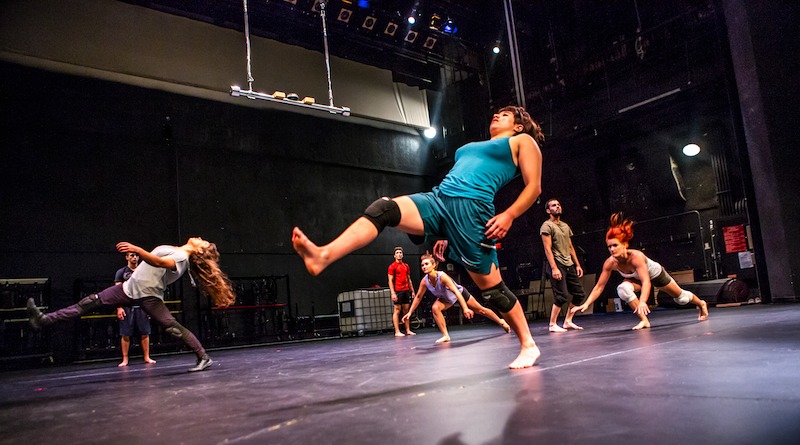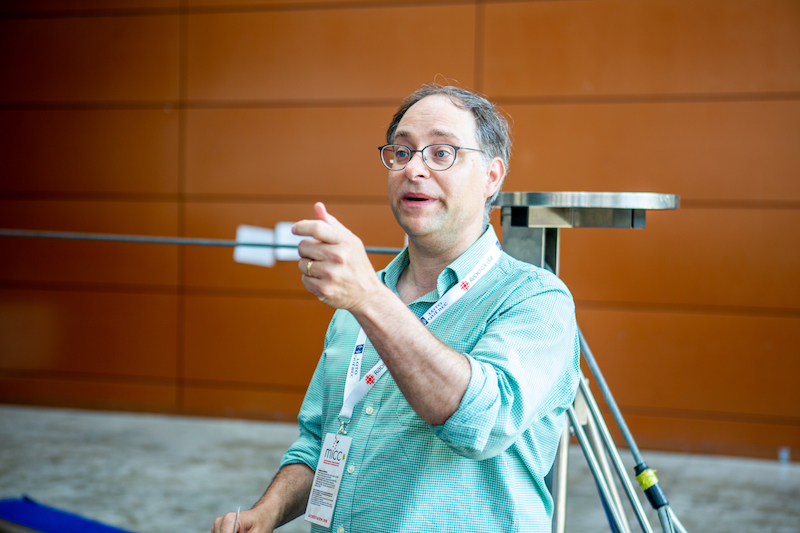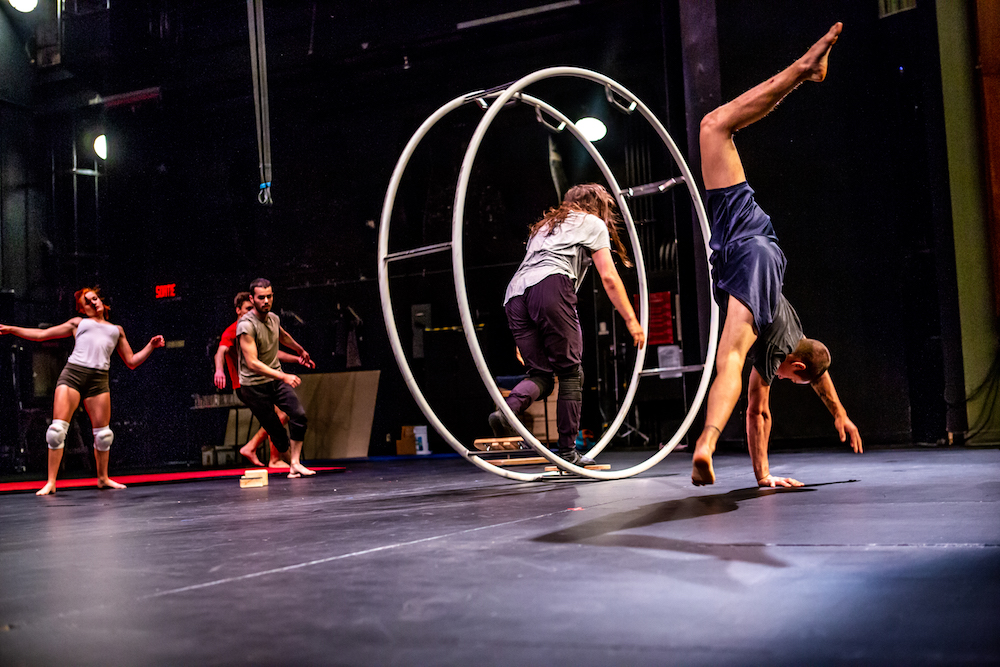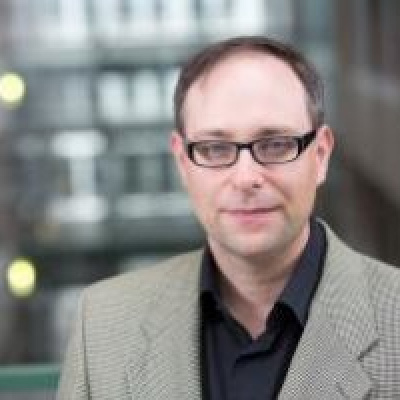Questions for Circus Research: Exploration of Contemporary Circus in Quebec and Beyond with Louis Patrick Leroux

For our second article in the Adventures in Circus Research series, we hear from Dr. Louis Patrick Leroux, a pioneer of circus research in Quebec. His extensive experience as a playwright and director led him to an interest in circus when he noticed that certain renowned theatre directors (e.g. Robert Lepage,KA, Dominique Champagne,Vareikai,LoveandZumanity, René-Richard Cyr,Zumanity) were creating work with Cirque du Soleil. By founding the Montreal Working Group on Circus Research in 2010, Leroux has provided a forum within which academics, practitioners, students, and audiences can meet and share research about, and experiences of, the contemporary circus. Many publications on circus arts have come from the Working Group events, include a book on Quebec circus co-edited by Leroux and Charles Batson.
 Leroux’s own research on circus arts has centered around the conditions of performance within contemporary circus, ranging from the physical experience of the performers, to the audience experience, to the creative approach taken by coaches, directors and dramaturgs. As an advocate of practice-as-research, an academic research method that prioritizes experience as a source of knowledge, he conducts research with the activities of circus itself. His research has included collaborations with The 7 fingers, Cirque du Soleil, Montreal’s National Circus School (ENC), and many independent artists and creators.
Leroux’s own research on circus arts has centered around the conditions of performance within contemporary circus, ranging from the physical experience of the performers, to the audience experience, to the creative approach taken by coaches, directors and dramaturgs. As an advocate of practice-as-research, an academic research method that prioritizes experience as a source of knowledge, he conducts research with the activities of circus itself. His research has included collaborations with The 7 fingers, Cirque du Soleil, Montreal’s National Circus School (ENC), and many independent artists and creators.
I stumbled upon circus. Its inevitability was revealed at the right moment. I came from theatre practice, dramaturgical inquiry and discourse analysis with a keen interest in both poetics (the mechanics of how art is made) and socio-aesthetics (how art is received, by whom and in what conditions). When I realized the impact of Québec artists from theatre, dance, and multimedia design on circus, I started to take notice of this international phenomenon Québec has gotten itself involved with, and indeed, to which it has contributed quite extensively. From a healthy curiosity in why Quebec’s top theatre and dance artists were drawn to Cirque du Soleil, to a desire to understand what ‘makes’ contemporary circus worldwide and, along the way, the development of a strong advocacy for a greater diversity of forms and artist agency, my journey in circus has kept me very busy and present on many fronts, firstly in Montreal, but just as often abroad.
When researching circus, I approach it as a whole, including its codes, conventions, language, sociolects, expectations, international scope and very local concerns. I am interested in how artists create, how they think, how they commit but also how they resist. I am interested in how circus matters, how it emerges and takes hold of various societies. This has provoked fascinating conversations with artists all over the world, with me constantly trying to understand what drives them and how they engage with the creative process of circus.
Serious, vetted, deep-knowledge research takes a long time; much longer than practitioners and companies are understandably often willing to accept. As with committed circus technique, research is long, exigent work. There must be time and opportunity for going down various erroneous paths, with observations and results requiring verification by peers. I see research in terms of years — decades, sometimes, if needed. Perhaps that is why there is very little current theory for contemporary circus, although there are histories of practices and compendiums of lists and facts.By theory, I mean both a system of ideas (not just hunches and experiences, but a reasoned system) and, especially, an intellectual lens through which one reads any activity. Theory allows us to make sense of what we otherwise experience at face value. Contemporary circus theory is only just emerging, percolating, drawing from every available source. From theatre to dance, from gender and cultural studies to sports analysis and medical-driven methods, theory from other fields offer their own reassuring lenses.
My personal approach to research is less about finding absolute answers or metrics (or even theory, though I am constantly tempted) but more about understanding the ecology, and socio-esthetic and economic drivers of an environment. It is also engaging in conversations with a great variety of circus artists and creators and working with them to find the right questions. What perfect questions can my research prompt that will be useful to others? Research is not about answers but about asking the right questions to help us along a journey.
Some of the questions I have asked and keep asking myself and that traverse my projects in one way or another:
From the sociological and community perspectives:
- How best to avoid helicopter research, offering the community results while still havingthose validated in an academic context?
- How did Quebec become such an unlikely hub for contemporary circus practice, pedagogyand research?
- How can I help isolated communities connect with the larger circus milieu?
- How can we better work together, share resources and results?
- What are some of the distinctive forms that each community offers to the circus world?
Working through poetics, process and dramaturgy:
- Why are there so few accomplished creators and so many excellent interpreters/artists?
- What ideal conditions do we need to set up to foster creative talent in circus?
- What would an ideal seminar/workshop for graduate students and accomplished maturestudents look and feel like?
- When an artist says they are too tired to continue; why don’t we always believe them?
- What is the relationship to the apparatus and how can this be further explored anddensified?
Drawing from history and thinking pedagogically:
- Why does history repeat itself and no one remembers source materials, acts, narratives?
- Where have all the old circus stories gone? How can we engage with them today?
- What are the deep-rooted collaborations in circus, over time, that connect north and south? What are some of the tales that we can still uncover and learn from?
- Why circus, now?
- Why work alone, when I can share and collaborate?
 Circus has brought me to collaborate in ways I hadn’t done since my earlier theatre practice, as a director, playwright and producer. Because of circus research, I have worked with economists, medical doctors, cultural anthropologists, linguists, sociologists, engineers, management scholars, circus artists, directors, pedagogues. These collaborations have resulted in forthcoming articles, case studies, chapters and books, all in collaboration, will cover topics such as the management style of The 7 Fingers, the results of a study into physical literacy and creativity through circus in the schools, an early history of Québec circus through its iconic images, and a report on circus dramaturgical strategies and meaning-making (see the “In preparation” section at the end of the “Selected readings” section).
Circus has brought me to collaborate in ways I hadn’t done since my earlier theatre practice, as a director, playwright and producer. Because of circus research, I have worked with economists, medical doctors, cultural anthropologists, linguists, sociologists, engineers, management scholars, circus artists, directors, pedagogues. These collaborations have resulted in forthcoming articles, case studies, chapters and books, all in collaboration, will cover topics such as the management style of The 7 Fingers, the results of a study into physical literacy and creativity through circus in the schools, an early history of Québec circus through its iconic images, and a report on circus dramaturgical strategies and meaning-making (see the “In preparation” section at the end of the “Selected readings” section).
Is there one constant? Perhaps this broad question: “How can circus matter, deeply, to more than just circus folk?”But also, this fundamental one: “How does circus work, exactly, and how can I help define this?”
This year’s upcoming graduate seminar information is available here.
Related content: Cirque Global Highlights Quebec’s Influence on Contemporary Circus, Experiential Learning in Contemporary Circus–A Seminar in Montreal, and Meanwhile, Backstage…
Selected Suggested References Books: Contemporary Circus, co-authored with Katie Lavers and Jon Burtt, London: Routledge. July 2019. Cirque Global: Québec’s Expanding Circus Boundaries, edited with Charles Batson. Edited collection (multiple authors). McGill-Queen’s University Press. May 2016. Articles: “Circus and its Terms. Reading (into) them” in “ATHE Conference 2017 Plenary: A Spectacular Balancing Act,” Theatre Topics, vol 28, issue 1; March 2018, p. 7-14. “North-South Circus Circulations: Where Québécois and American Circus Cultures Meet,” Québec Studies 58, Fall-Winter 2014, p. 3-24. “Cross-Border Circus: Americans in Montreal” with Amy Cohen, Francisco Cruz, Kyle Driggs, Louis Patrick Leroux, Sarah Poole, and Duncan Wall. Co-edited with Jane Moss, Québec Studies 58, Fall-Winter 2014, p. 65-86. Book chapters: “The diverse narratives of Cirque du Soleil” in Narrative in Performance, London : Red Globe Press/Macmillan international higher education, 2019, p. 111-132. Co-written with Katie Lavers. “Research Performance as Apprenticeship and Performative Research. Musings from a Supervisor,” Current Challenges in Doctoral Theatre Research, Edited by Radka Kunderova, Janacek Academy of Music and Performing Arts, Brno, Czech Republic, 2017, p. 47-55. “The Cirque du Soleil in Las Vegas : An American Strip-Tease” (reprint of article originally published in Revista Mexicana de Estudios Canadienses, nueva época, 2008), requested by editors Peta Tait and Katie Lavers for inclusion in The Circus Studies Reader, London: Routledge (Taylor and Francis), 2016, p. 546-552. Retrieved here “Contemporary Circus Research in Québec: Building and Negotiating an Emerging Interdisciplinary Field” (reprint of article originally published in Theatre Research in Canada, 2014), requested by editors Peta Tait and Katie Lavers for inclusion in The Circus Studies Reader, London: Routledge (Taylor and Francis), 2016, 560-571. Retrieved here “Circus Dramaturgy, an Interview with Louis Patrick Leroux,” Theatre Topics. Journal of the Association for Theatre in Higher Education, interviewed by CarlosAlexis Cruz Casas, September 2014, vol 24, no 3, p. 269-273. Retrieved here Blogs: “Meanwhile, Backstage,” Circus Talk, 2 November 2018. “Field Notes from a field school in a burgeoning field,” CdnTimes, Spiderwebshow.ca, 8 August 2017: In preparation: Book: French Thought and Writing on the Circus, edited volume of significant French-language articles on the circus translated into English. Edited with Cyril Thomas and Marion Guyez. In preparation. Articles: A series of co-authored articles around the physical literacy, creativity and resilience project studying circus in schools. First article will be co-authored by Alisan Funk, myself, Patrice Aubertin, Dean Kriellaars, Michael Ungar and Doug Klein. Submitted: Chapter: “Early Québec Circus” text and choice of iconic rare images for Canadian Plays and Performance Documents, 1606-1967, edited by Allanna C. Lindgren, Glen Nichols and Tony Vickery, University of Alberta Press. Submitted to press. Articles: “Hamlet sur le fil : écrire ou ne pas avoir écrit pour le fil” in a special themed issue on “bodytexts,” edited by Catherine Cyr and Louis Patrick Leroux, L’Annuaire théâtral, forthcoming 2020. Case studies (Management, for HEC Montréal business school): “Les 7 doigts de la main : Un collectif circassien qui repousse les frontières.” Five linked case studies on the 7 Fingers for management students studying the management style, choices, organisational structure and creative process both in rehearsal and in the management decisions. Authors: Joanie Leroux-Côté, Wendy Reid, Patrick Leroux and Maribel Courcy (different order of authors, depending on the individual case studies).
All photos courtesy of Dr. Louis Patrick Leroux from 2018 seminar
Editor's Note: At StageLync, an international platform for the performing arts, we celebrate the diversity of our writers' backgrounds. We recognize and support their choice to use either American or British English in their articles, respecting their individual preferences and origins. This policy allows us to embrace a wide range of linguistic expressions, enriching our content and reflecting the global nature of our community.
🎧 Join us on the StageLync Podcast for inspiring stories from the world of performing arts! Tune in to hear from the creative minds who bring magic to life, both onstage and behind the scenes. 🎙️ 👉 Listen now!
